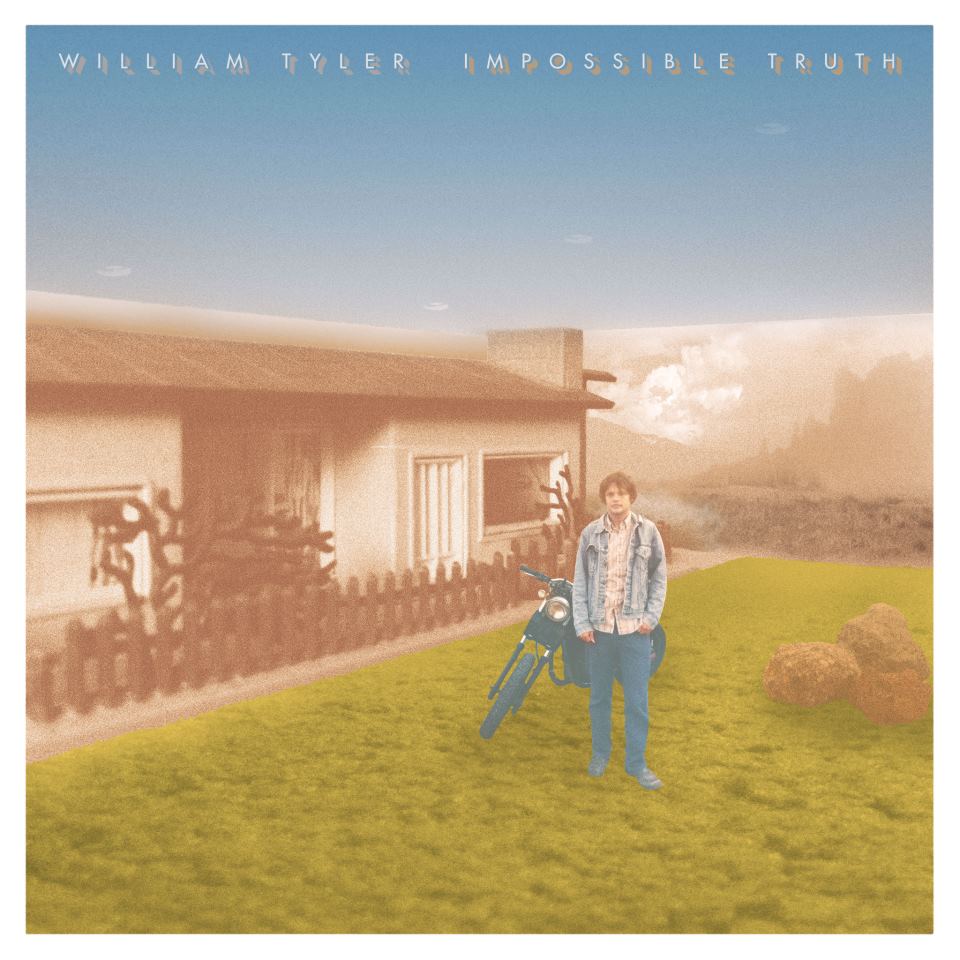On 2010’s Behold the Spirit, guitarist William Tyler seemed to be asking some tough questions, and turning to his six- and twelve-stringed guitar for help. Aided by splashes of lap steel and ambient effects, it was consequently labeled “folk music,” though the album often looked to myths and legends for its inspiration. Just consider some of the song titles: “Terrace of the Leper King,” “Tears and Saints,” and “The Cult of the Peacock Angel.” After a career backing some of indie rock’s best bands (Lambchop, the Silver Jews, Bonnie Prince Billy), Behold The Spirit was an impressive debut. He had succeeded in creating something wonderfully different; otherworldly, but grounded in the familiar. Given the title of his follow-up record, Impossible Truth, it’s safe to say Tyler still hasn’t figured out all the answers. Released last month on Merge Records, he continues to ponder his probing questions in his distinct style, which is to say, it’s quite lovely.
Superficially more accessible than Behold the Spirit, the album makes continued use of Tyler’s lovely finger-picking and wrist-curling riffs. Tunes are built slowly and satisfyingly, ebbing and flowing into oceans of ambient sound. Through these layers, though, shine frequent flashes of utter brilliance. Take album opener “Country of Illusion,” for example. After a meditative, almost Middle Eastern opening, the tune finds its groove behind a balancing bass. The track hits its stride before intentionally muddying the waters again, eventually allowing glints of lilting lapsteel in to lift the tune into the stratosphere.
“Geography of Nowhere” is next, featuring a bluesy introduction, followed by a winking nod to “Paint It Black,” before going back to blues, all dripping wet with reverb. Trying to pinpoint the genesis of the riff is pointless, perhaps as the title implies, and soon its echoed out in a sea of silence. Of course, even the changes of pace are delightful. On “Cadillac Desert,” Tyler’s band begins behind a fuzzy low end before vibes pick up the melody. While the title of “Hotel Catonia” will make you turn your head, it’s really a finger-picking roadtrip through a sun-soaked countryside, preferably with the top down. Fittingly, geography seems to influence much of the record.
Impossible Truth was conceived on tour, as Tyler was alternating between reading Bernard Hoskyn’s “Hotel California” and Mike Davis’ “The Ecology of Fear.” The two books cover California but from vastly divergent viewpoints. The former details the Laurel Canyon scene that spurred the careers of C.S.N.Y., Joni Mitchell, the Eagles, et al., including all the accolades, attention and addictions that came with it. Davis’ book compares and contrasts Hollywood’s love affair with special effects-style apocalypses with its very real–and very tenuous–relationship with its environs. So Tyler is both looking back with nostalgia at the halcyon days of the record industry, while being grounded in reality, staring a bleak horizon. Or as he puts it, this is “my ’70s singer-songwriter record; it just doesn’t have any words.”
No, it doesn’t have words. Instead it has musical opuses like the album closer “The World Set Free.” Equally hummable and haunting, the song puts a gorgeous bow on the entire affair. It encapsulates Tyler’s immense skill, his probing curiosity and propensity for grandeur. He’s still asking life’s tough questions, but this time seems content with the universe’s non-response. It’s a familiar refrain, but an important one: life is unknowable, but it can still be beautiful. And in William Tyler’s hands, it is most beautiful indeed.

